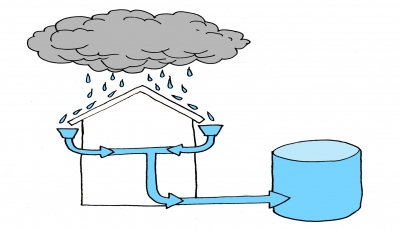Reclaim Waste Melbourne: Advanced Approaches for Reliable Liquid Waste Removal
Reclaim Waste Melbourne: Advanced Approaches for Reliable Liquid Waste Removal
Blog Article
Fostering Source Effectiveness and Environmental Defense Via Liquid Waste Elimination Programs
In the world of ecological stewardship, the monitoring of fluid waste stands as an essential juncture where source efficiency and ecological protection merge. Fluid waste elimination programs play a crucial function in guarding our environments and guaranteeing lasting development techniques. By diligently addressing the disposal of fluid waste, sectors and communities can not just mitigate potential dangers however also unlock chances for recycling and repurposing useful sources. As we navigate the complexities of waste monitoring in a quickly developing world, the synergy between ingenious modern technologies, rigorous laws, and forward-thinking methods becomes increasingly extremely important. Through a lens of proactive involvement and tactical insight, the landscape of liquid waste administration unveils a tapestry of difficulties and opportunities that beckon us to discover the path in the direction of a greener and even more lasting future.
Value of Fluid Waste Removal
The value of liquid waste removal exists in its critical function in preserving environmental health and wellness and protecting public well-being. Liquid waste, if not correctly taken care of, can pose severe threats to communities, water resources, and human health. With reliable elimination procedures, damaging compounds such as chemicals, contaminants, and microorganisms are stopped from polluting the environment and triggering harmful results.
Proper liquid waste elimination additionally helps in avoiding the spread of diseases and minimizing the capacity for groundwater contamination. By safely getting rid of fluid waste, the threat of waterborne health problems and pollution-related health problems is considerably reduced - Reclaim Waste. In addition, reliable removal techniques contribute to maintaining the overall tidiness and appearances of neighborhoods, thus enhancing the lifestyle for citizens
In addition, liquid waste removal plays a crucial function in supporting sustainable advancement and ensuring conformity with environmental policies. By adhering to correct waste administration industries, procedures and services can minimize their ecological impact and show corporate responsibility. Eventually, spending in durable fluid waste elimination programs is essential for advertising ecological stewardship and cultivating a healthier, more secure future for all.

Benefits of Effective Disposal
Efficient disposal of liquid waste not just safeguards ecological health and wellness and public wellness however likewise yields numerous advantages that expand past immediate containment steps. One essential advantage of efficient disposal is the decrease of air pollution in water bodies and dirt. By properly taking care of liquid waste, the threat of contamination reduces, guarding and maintaining ecosystems biodiversity. Additionally, reliable disposal methods add to source preservation. With processes like recycling and energy healing, beneficial sources can be removed from liquid waste, advertising sustainability and minimizing the pressure on raw products. Moreover, adopting efficient disposal methods can result in cost financial savings for organizations and communities. By enhancing waste management procedures, organizations can simplify procedures, decrease disposal costs, and potentially produce income through the sale of recycled materials. Overall, the advantages of efficient fluid waste disposal are multifaceted, including ecological protection, resource efficiency, and economic benefits.
Technologies for Waste Therapy
Utilizing innovative technologies for waste therapy plays an essential role in making certain the effective management and safe disposal of liquid waste. One of the essential innovations used in liquid waste therapy is organic treatment.
Additionally, thermal therapy methods such as incineration can be employed for the total damage of unsafe parts in fluid waste. Overall, the combination of varied therapy modern technologies guarantees detailed and ecologically friendly administration of fluid waste.
Function of Regulations and Compliance
In the realm of liquid waste management, adherence to regulatory frameworks and conformity criteria is critical for safeguarding ecological wellness and sustainability. Laws play an important function in controling the correct handling, therapy, and disposal of fluid waste to stop injury to ecosystems and human wellness. By establishing clear standards and criteria, governing bodies ensure that businesses and people entailed in liquid waste management operate in an ecologically liable fashion.
Compliance with these policies is not only a legal need yet also an honest obligation to safeguard the environment for future and existing generations. It includes applying ideal techniques in waste collection, disposal, transport, and therapy to decrease useful reference environmental influence and promote source effectiveness. Non-compliance can result in penalties, legal action, and reputational damages for organizations, highlighting the value of upholding governing standards.

Future Patterns in Waste Monitoring

Another key pattern in waste management is the fostering of sophisticated data analytics and expert system to maximize waste collection courses, improve arranging procedures, and improve general operational performance. These modern technologies make it possible for waste management companies to make data-driven decisions, bring about cost financial savings and ecological advantages.
Moreover, there is an expanding focus on the development of decentralized waste management systems, such as onsite therapy facilities and mobile waste handling devices. These systems offer adaptability and scalability, permitting for much more efficient waste handling in diverse settings.
Verdict
In verdict, promoting resource effectiveness and environmental protection via liquid waste elimination programs is essential for sustainable growth. Effective disposal methods, progressed innovations for waste therapy, and rigorous laws play key functions in reducing environmental effect. Looking in advance, constant development and renovation in waste administration practices will be crucial for dealing with the growing difficulties of fluid waste disposal.
In the world of ecological stewardship, the monitoring of liquid waste stands as a critical juncture where resource performance and environmental defense converge (Liquid waste removal).Using sophisticated technologies for waste treatment plays an important role in ensuring the efficient monitoring and secure disposal of liquid Our site waste.In the realm of fluid waste administration, adherence to regulatory frameworks and conformity requirements is vital for securing ecological wellness and sustainability.In verdict, promoting source effectiveness and ecological protection via liquid waste removal programs is important for lasting development. Looking in advance, continual development and renovation in waste monitoring methods will certainly be essential for addressing the expanding challenges of fluid waste disposal
Report this page